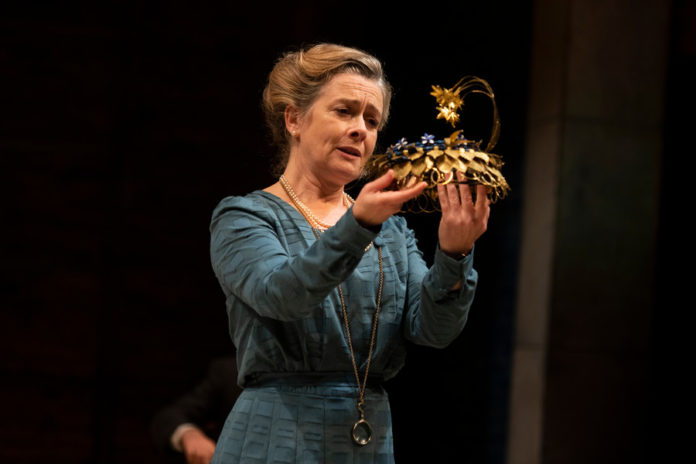Richard Lutz watches two plays on the same Stratford stage. But does it work?
Photo by Ellie Kurttz
This new play, A Museum in Baghdad, should be an important production as it dissects Iraq’s continual woes since the country was created by the British after the First World War.
Sometimes, author Hannah Khalil hits the bullseye. Other times, she misses by a country kilometre.
It’s the story of two strong women. One is the indomitable Gertrude Bell (above) who, in 1926, created the archeological museum in Iraq’s capital. Sharing a split stage is the fictional Ghalia Hussein who, 80 years later, is attempting to rebuild the ruined museum, wrecked by war.
Both stories examine when the west, either through colonialism or violence, meddle in Middle-East affairs and screw things up: either through a pompous British Empire or the American incursion at the turn of this century.
The problem is that the double-decker narrative is mired in confusion at times. Dialogue can wander into sheer rhetoric or mini lectures rather than theatrical dialogue to move a story forward. The twin scenarios divide the Swan stage; sometimes time frames merge; and, some characters actually appear in the 1926 narrative as well as the 2006 one.
Khalil also uses simultaneous recitals from all the actors from both sides of the division to talk in unison like a Greek chorus to get a point across. And at times, despite the glimmer of lyricism of some of the writing, there is Arabic dialogue which does much for verisimilitude but not much for audience understanding.
Despite these flaws, there are strong points. And these are the actors. Emma Fielding as Gertrude Bell is an astute and vital presence. She is a saving grace of the play. She portrays Bell as a formidable and experienced diplomat and archeologist, taking on nascent Iraqi nationalists with the same strength that she uses to battle self-important careerists from the British Museum, with a full range of commitment and shrewdness.
Her modern alter ego Ghalia Hussein is played with a permanently anguished expression by actor Rendah Heywood. And though Ms Heywood illustrates the utter frustration and dangers of the broken-backed modern Iraq, her performance does highlight how some Baghdadi academics admirably refuse to buckle under pressure from both the Americans and from home-grown fundamentalists.
Maybe director Erica Whyman should have simplified the story or even created back-to-back productions to make this play more tenable and accessible. But to have both stories on stage to reflect on how the West persistently stumbles into Arabic dynamics muddies the waters.
Yes, Iraq and the whole Middle East quagmire needs telling, analysing and re-telling. Yes, a stage play can be a relevant vehicle. But, sadly, this isn’t the one to do it.
At the Swan Theatre, Stratford-upon-Avon, until 25th January.




saw it and agree